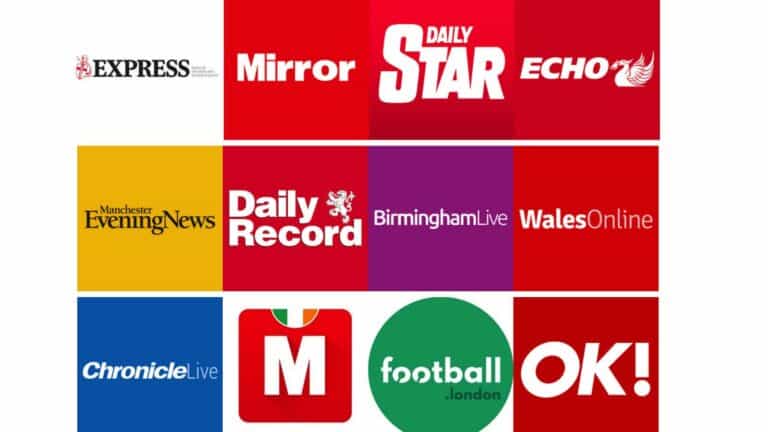The regional publisher behind the Manchester Evening News and Liverpool Echo is to cut 550 jobs – 12% of its total workforce – after newspaper sales and advertising were badly hit by the coronavirus crisis.
Reach, which also owns the Daily Mirror, Daily Express and OK! Magazine, saw revenue sink by 27.5% in the quarter to the end of June, a period when a fifth of its staff were placed on furlough.
Print revenue was down by 29.5% during the period, with digital revenue falling by 14.8%.
The company – which also owns the Newcastle-based Chronicle – said it now plans to begin a 45-day consultation period with around 550 staff and move to editorial to a “more centralised structure” bringing together national and regional teams across print and digital in a bid to “significantly increase efficiency and remove duplication”.
Reach also said it would move to fewer newsrooms and a “simpler” management structure.
A new self-serve digital platform will also be launched for SME digital advertisers, and there will also be further investment in the InYourArea hyperlocal platform, which Reach said now had over 800,000 registered users.
Jim Mullen, Reach CEO, said: “Structural change in the media sector has accelerated during the pandemic and this has resulted in increased adoption of our digital products. However, due to reduced advertising demand, we have not seen commensurate increases in digital revenue.
“To meet these challenges and to accelerate our customer value strategy, we have completed plans to transform the business and are ready to begin the process of implementation. Regrettably, these plans involve a reduction in our workforce and we will ensure all impacted colleagues are treated with fairness and respect throughout the forthcoming consultation process.
“The plans will provide a stable platform for us to accelerate our strategy, based on stronger and deeper customer relationships, increasing our appeal to advertisers. This will ensure the sustainability and profitability of the Reach business, enabling it to deliver to stakeholders over the long-term.”
Back in March, Reach reported a 2019 revenue of £702.5m, with print revenue declining by 5.1% to £591.3m and circulation revenue declining by 4.5%.
Digital revenue had risen 13.2% however, helping the company to a statutory profit after tax was £94.3m.
Reach said the job cuts would achieve £35m in cost savings for a one-off cost of £20m.
Michelle Stanistreet, NUJ general secretary, said the announcement was a “shock and body-blow” for its members.
She said: “It will be poor reward for hard-working journalists who have shown great flexibility and adaptability to uproot from their offices to switch to working from home, with all the stress and difficulties that have arisen, to then find there is no job for them in a redundancy process that they have now been pitched in to.
“Across the group, more than 2,000 people will now be officially placed at risk of losing their livelihood and that will be particularly tough for those who have spent weeks, if not months, on furlough under the government’s optimistically titled Job Retention Scheme.
“With the company looking to save £35 million by making these cuts and changes, we remain to be convinced that the loss of hundreds of talented journalists will help the stated mission to deliver quality news and content. We therefore will be seeking to retain as many editorial jobs as possible as the company embarks on its new strategy of centralising national and regional editorial teams. We will be pressing for answers about just how this proposed major structural change can work in practice, for fair treatment for all staff, including casuals and for proper equality impact and risk assessments to be carried out.”












